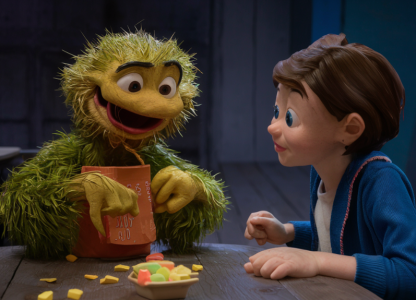My involvement with “Coaching young people,” was incidental. It arose from a conversation with a trusted parent and led to a Coaching engagement with their son. Their confidence in my Coaching leading to a number of referrals and here we are. In a series of posts, I am retrospectively capturing the Coaching insights and common threads, as well as my own professional learning reflections, Coaching (sometime tutoring) four boys aged fourteen to seventeen.
Part 1 started with the elevated importance of “contracting” and what is “noticeably similar and markedly different,” when Coaching young people. Part 2 looked at framing the Coaching, Coaching models, hinted at questions (it is hard not to talk about questions), and the expectations set of the Coach-Coachee. Part 3 will take a close look at the Coaching questions I find myself most frequently employing when contracting and Coaching, mostly with OSKAR.
Contracting questions
With the elevated importance of Contracting with both the young person and the commissioning agents or parents, this is an important place to start. I use a brochure / document that I share ahead of Contracting, that takes both parties through Coaching process and a “scoping” document with the Coachee.
This introduces the Coachee to three phases and presents a few questions to help me get to know them ahead of the first session. It helps to build rapport and gives us plenty to explore in that first session.
Respect the past:
- When at your best – you are like what?
- What has got you to where you are now?
- What three adjectives would others use to describe you?
- What have you done well in the past?
Lead the present
- How content are you in general?
- What are the areas for your personal development that you deem to be most important?
- What would you like to have happen with the help of my coaching?
- What would you like to have happen that is not happening now?
Secure the future
- If you were successful in achieving your goals – what would be different?
- What would other people notice was different about you?
Coaching openers
Moving onto the regularly Coaching sessions. The Coachee always sets the aims and “success criteria for the session.” It get’s them involved, owning the session, from the outset.
What outcome would you like to achieve in this session?
How will we evaluate the success of the Coaching at the end of the session?
By the second, or sometimes thirds, session, once trust is established, when the Coaching relationship is secure, I add:
What kind of coach would you like me to be for you in this session?
This again promotes agency and allows the Coachee to set the “level of challenge.” I believe developing this agency is even more important when Coaching young people, as otherwise their lack of experience and lower emotional intelligence can all to easily lead them to misinterpret “challenge” for being “told-off|” or “chastised.” This is most certainly not a parenting session. This plays into the observation from part 1 that “agency and a young persons emerging autonomy, plays a more impactful role when Coaching young people.”
Coaching Models – GROW and OSKAR
The Coaching model allows you to define the environment within which the Coachee’s defines, refines or tackles a pertinent issue or problem. With young people, I find myself Coaching with OSKAR as much, if not more, than I do GROW.
… the words we use shape our experiences, the meaning we give them, and the way we change them.
Campbell and Van Nieuwerburgh (2018)
Words are important – no question. Young people can be fairly loose with their language and barriers or obstacles are often very tall, sturdy, wide or even all three. Whilst I predominately use a GROW with adults, I have mentioned that OSKAR has helped move the Coaching conversations past some pretty tall, study and wide, barriers.
- Outcome: Similar to the GROW model, the OSKAR model starts with clarifying the Coachee’s desired outcome. However, it emphasises envisioning the desired future state.
- Scaling: In this stage, the Coachee assesses their current position on a scale from 0 to 10 in relation to their desired outcome. It involves evaluating progress and identifying what’s already working well.
- Know-How: Here, the focus is on identifying the Coachee’s strengths, resources, and capabilities. It involves exploring what they already knows and what skills or knowledge they need to acquire.
- Action: Similar to the “Will” stage in the GROW model, this stage involves developing a concrete action plan. I will say, small bites here.
- Review: The final stage involves reflecting on progress, celebrating successes, and learning from setbacks. This can often be a great opener to the following session.
A few Clean questions that help build self-reflection and confidence.
When you’re learning at your best, you’re like what?
Think of someone you truly respect and admire. How would they look differently at this situation?
What would happen if you did nothing?
Closers
What do you need to stop saying ‘Yes’ to?
What is one thing you will do immediately after our session today?
One final self-reflection: Answering Coachee questions – with a question
That is an important question. Who is the best informed person to answer it?
That is an important question. Who may know the answer?
Lastly, I have found myself responding to Coachee’s questions, with questions of my own. It is a common Coaching-on-the-go technique that has proven powerful when Coaching young people who have yet to develop sufficient self-reliance, self-direction, resourcefulness, initiative… call it what you will. Answering a Coachee’s question with a question, is an effective “spoon-feed me” antidote.
That’s a wrap for part 3.



